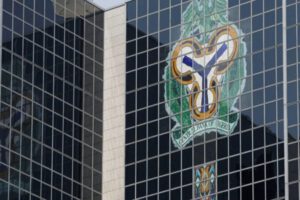
By Amah
Kindly share:
The Central Bank of Nigeria, CBN, has said Next of kin, legal representatives, or beneficial owners can make claims for unclaimed funds in dormant accounts.
The apex bank at the weekend clarified that the next-of-kin to dormant account owners could apply for funds in dormant accounts by submitting applications for the reclaims to the concerned financial institutions.
It added that applicantd should attach relevant legal evidence of title and in the case of corporate entities, their directors, authorised signatories, business addresses and any other customer update for the reclaim of balances transferred to CBN.
The apex bank said it has authority to issue regulations for the management of dormant accounts and unclaimed funds/balances.
It is also authorised to receive and manage eligible funds in trust for the account holders and funds beneficiaries.
The apex bank is also empowered by law to establish a dedicated office supervised by a management committee.
According to the report: “The CBN will manage the unclaimed balances by warehousing the funds in the Unclaimed Balances Trust Fund (UBTF) Pool Account and thereafter investing the funds in Nigerian treasury bills and other approved securities.
“The Unclaimed Balances Trust Fund (UBTF) Pool Account is an account maintained by the CBN for the purpose of warehousing and managing unclaimed balances in eligible accounts.”
The CBN says it will refund the principal and any interest on the invested funds to the beneficiaries within 10 working days of receiving a reclaim request.
It said that account owners are expected to visit financial institutions to complete an asset reclaim form and provide evidence of account ownership, sworn affidavit of support and valid identification.
The financial institutions shall verify the claim and initiate the request with supporting documents to CBN within 10 working days.
The apex bank shall refund the monies to the account of the beneficiaries within 10 working days from the date of the receipt of the financial institution’s request.
The CBN explained that where the licence of a financial institution is withdrawn, the Nigeria Deposit Insurance Corporation (NDIC) shall assume the role of the financial institutions in the management of dormant accounts.
The CBN explained that although the policy does not require banks to transfer funds in domiciliary accounts to the CBN, however, balances in dormant domiciliary accounts, like balances in dormant naira accounts, will be affected by this policy change.
“However, no active domiciliary account is affected by the policy,” the bank stated.
The bank described an inactive account as an account that has no customer-initiated transaction for six to 12 months, while a dormant account is an account that has remained inactive for one year or more.
It said: “Unclaimed balances are account balances and other financial assets that have remained dormant for a minimum of ten years in the books of financial institutions and qualify for transfer to the CBN.
“Eligible accounts are dormant account balances that have remained with the financial institutions for a period of 10 years or more.
“These eligible accounts include current, savings, term deposits in local currency, domiciliary accounts, deposits for shares and mutual investments, prepaid card accounts and wallets, government-owned accounts, and others as specified in the guidelines by the CBN.”
The regulator listed the accounts are exempted from being considered dormant as accounts that are subject to litigation; judgment debt for which the creditor has not claimed the amount of judgment award and the case is still active in court; accounts under investigation by a regulatory authority or law enforcement agency and encumbered accounts including, but not limited to, collaterals and liens.
The CBN directed commercial banks to notify account owners in writing through the agreed medium, such as email, text message and letter immediately an account becomes inactive/dormant and thereafter on a quarterly basis.





